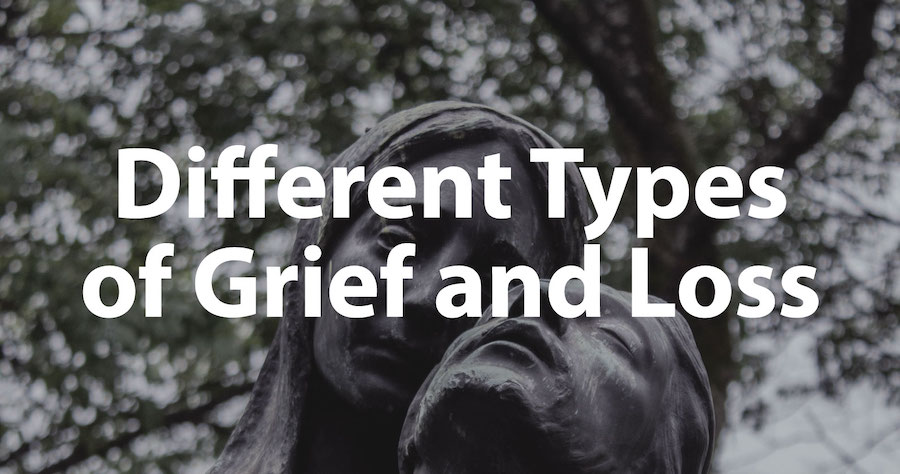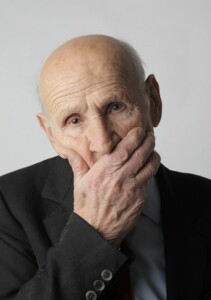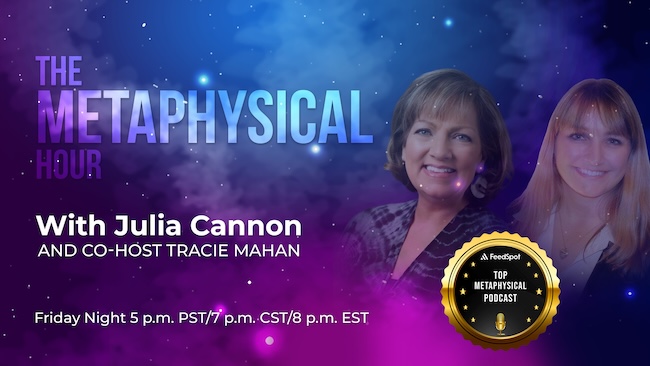
I recently lost a good friend to leukemia. Mercifully it was a relatively short illness. A terminal diagnosis at his age meant a probable life expectancy of only six months to a year and, as it happened, he endured for eight months before finally succumbing. Even though it was not an unexpected loss, knowing and priming one’s self for such an inevitability does not mitigate the shock of the actual event. The death of a loved one, whether, through terminal illness, old age or accident is highly traumatic, regardless of the circumstances.
In the months leading up to his death, I often wondered how I would react when I finally received the news of my friends passing. My experience of his memorial service only served to raise more questions, not least of all because I found that my reactions to this personal trauma differed from those around me. Witnessing that intimate gathering of family members and friends, and their contrasting grief reactions to the loss of a beloved man, got me wondering about various types of grief and individual responses to loss.
Different types of grief and loss
 Grief is defined as the emotion felt when experiencing the loss of a person or thing that is important to us. As human beings, we form emotional attachments to a wide range of people and things and, consequently, there are more than one documented types of grief.
Grief is defined as the emotion felt when experiencing the loss of a person or thing that is important to us. As human beings, we form emotional attachments to a wide range of people and things and, consequently, there are more than one documented types of grief.
Furthermore, types of grief should not be confused with the grieving process. Many people are familiar with the Kubler-Ross model that describes five stages of grief – denial, anger, bargaining, depression and acceptance. These are simply the stages an individual may go through when dealing with grief typically associated with the death of a loved one. It does not describe different types of grief, nor does it necessarily apply to grieving over other types of loss.
So, let us examine some of the various types of grief in more detail. In doing so bear in mind that you can substitute death of a loved one for any type of loss, be it a job, home, relationship or even substance abuse.
1. Normal grief
Definition
Don’t confuse the meaning of the word ‘normal’ with ‘typical’ or ‘standard’. The length and severity of the grieving process will differ greatly from person to person. Normal grief refers to a fairly predictable grieving process whereby the griever is able to continue with their usual daily routine whilst moving through the grieving process towards an acceptance of their loss.
Responses & reactions
 Outwardly it may appear that the griever is living life as normal, but it is common for severe symptoms and feelings of grief to be experienced in periodic, unpredictable bursts. However, the intensity of these emotions will gradually lessen over a period of time until a ‘new normal’ is realized. Because the mourner seems to be carrying on with their normal routine, the grief process may not be obvious to all but those closest to the griever.
Outwardly it may appear that the griever is living life as normal, but it is common for severe symptoms and feelings of grief to be experienced in periodic, unpredictable bursts. However, the intensity of these emotions will gradually lessen over a period of time until a ‘new normal’ is realized. Because the mourner seems to be carrying on with their normal routine, the grief process may not be obvious to all but those closest to the griever.
Reactions to normal grief are both physical and psychological, so along with the usual fluctuations in emotions, sufferers may also experience physical symptoms such as loss of appetite or weight gain, insomnia and fatigue, headaches and general aches and pains.
2. Anticipatory grief
Definition
As the meaning of the word ‘anticipate’ suggests, anticipatory grief involves the mourning of a loss yet to occur. This is particularly relevant to family caregivers of terminally diagnosed patients or relatives and friends of people suffering serious substance abuse issues or mental illness such as Alzheimer’s disease. The outcome is almost guaranteed and so the grieving process begins long before the actual death or loss.
Responses & reactions
Anticipatory grief can elicit complex reactions and responses in grievers. On the one hand forewarning of loss prepares one for the actual event and can lessen the impact or severity of grief. On the other, anticipatory grief can lead to feelings of guilt at grieving for someone who is still alive and the relief felt when they finally succumb to their illness. It is also difficult to speak to one’s personal support system about your grief when the person you care for is still alive. As such, anticipatory grief is often associated with feelings of helplessness, anger, confusion and hopelessness.
3. Complicated grief
 Definition
Definition
In a small percentage of people, normal grief becomes so severe in terms of the length and intensity of the grieving process develops into what’s termed complicated grief. Feelings of loss are so relentless and debilitating that it becomes difficult for the griever to engage in a normal daily routine.
Responses & reactions
Complicated grief sufferers often feel trapped in an endless circle of pain with no end in sight which leads to isolation and avoidance behavior, low self-esteem, violent outbursts and guilt. Prolonged complicated grief can lead to self-destructive behavior such as substance abuse and self-harm, suicidal thoughts and mental illness.
4. Chronic grief
Definition
Chronic grief refers to an intense feeling of sorrow and despair that last for an extended period and get worse progressively worse over time.
Responses & reactions
Responses to chronic grief are similar to complicated grief, with feelings of hopelessness, helplessness, with no progress towards acceptance of loss. Suicidal thoughts, substance abuse, self-harm and major depression can occur if left untreated.
5. Disenfranchised grief
Definition
 In contrast to other forms of grief, people suffering disenfranchised grief get limited support from people around them because socially or culturally the loss is deemed as insignificant. This is often associated with the loss of a pet, non-family member, an ex-spouse or other losses not linked to death. Gay partners will fall into this category if your support group is against same-sex relationships.
In contrast to other forms of grief, people suffering disenfranchised grief get limited support from people around them because socially or culturally the loss is deemed as insignificant. This is often associated with the loss of a pet, non-family member, an ex-spouse or other losses not linked to death. Gay partners will fall into this category if your support group is against same-sex relationships.
Responses & reactions
Disenfranchised grievers will often feel helpless, isolated and misunderstood, further exacerbating the grief-related stress they are already under due to their loss.
6. Absent grief
Definition
When a bereaved person carries on as though nothing has happened and exhibits no sign of grief, they are probably suffering from absent grief. This happens most often in the case of a sudden loss or unexpected death.
Responses & reactions
Absent grief is characterized by avoidance, and complete shock and denial. It is imperative that any griever stuck in this stage of grief for an extended period seeks treatment as a prolonged period of absent grief can lead to mental and physical health issues.
7. Delayed grief
 Definition
Definition
As the name suggests, delayed grief is characterized by grief symptoms and emotions that are experienced long after the initial loss.
Responses & reactions
Initial denial, avoidance and suppression of emotions and grief symptoms, sometimes followed by an overreaction to an unrelated incident a significant period of time after the loss was first suffered. Often the griever does not realize that they are reacting to the delayed grief and not the current situation.
8. Distorted grief
Definition
Distorted grief is experienced by bereaved persons stuck in the anger stage of grief.
Responses & reactions
Responses to distorted grief are intense and include extreme reactions to the loss; atypical and self-destructive behavior; acute feelings of guilt and anger at oneself; as well as hostility to others, often directed at a particular individual.
9. Cumulative grief
 Definition
Definition
Cumulate grief can present when multiple losses are experienced either simultaneously or within a short period of time.
Responses & reactions
Reactions to cumulative death can include any or all of the normal grieving reactions but are amplified because of the accumulation of grief, or because the griever has not properly processed the first loss before another occurs. Unchecked, cumulative grief can become complicated and prolonged.
10. Traumatic grief
Definition
Falling under the umbrella of complicated grief, traumatic grief can manifest itself when the loss was caused by a traumatic, unexpected event such as death by violence, natural disaster or terrorist attack.
Responses & reactions
Responses to traumatic grief are similar to those of complicated grief in that sufferers are incapable of going about their normal daily life and are constantly in a state of emotional distress. Self-harm and mental illness can occur
Common reactions to different types of loss and grief
Reactions to grief can be as diverse as the types of grief documented above and are not limited to emotional expressions of distress. Grief is often also expressed in physical, cognitive and behavioral ways and can adversely affect both mental health and physical health.
Emotional reactions to grief and loss
- sadness
- anger
- anxiety
- guilt
- relief
- loneliness
- helplessness
- hopelessness
- yearning
- shock
- numbness
 Physical reactions to grief and loss
Physical reactions to grief and loss
- headaches
- nausea
- dry mouth
- muscle tension
- shortness of breath
- chest pains
- stomach ache
- loss of appetite
- fatigue
Behavioral reactions to grief and loss
- social withdrawal/isolation
- abnormal behavior
- changes in activity level
- avoidance of places or reminders of the loss
- unusual focus on reminders of the loss
- self-harm
Cognitive reactions to grief and loss
- confusion
- disbelief
- dreams of lost person or thing
- preoccupation with loss
- suicidal thoughts
Treating grief
 In the past, the treatment of grief followed a more psychiatric methodology with doctors prescribing medications often used to treat major depression and anxiety. Unfortunately, these medications are only effective in controlling grief symptoms and some doctors believe they interfere with a griever’s ability to process the various stages of grief necessary for recovery.
In the past, the treatment of grief followed a more psychiatric methodology with doctors prescribing medications often used to treat major depression and anxiety. Unfortunately, these medications are only effective in controlling grief symptoms and some doctors believe they interfere with a griever’s ability to process the various stages of grief necessary for recovery.
These days there is a move towards a predominantly psychological, therapy-based approach that is more effective in treating the cause of the grief, enabling bereaved persons to address the underlying issues and process their grief naturally and healthily. Fortunately, there are now many options for grief support available to from one on one grief counselling to physical or social media-based grief support groups
Conclusion about different types of loss
Grief is still a very misunderstood emotion, the most common misconception of which is that it is purely related to the death of a loved one. Grief is much more complicated than that.
Just as there are many types of grief there is no one prescribed method for dealing with it. Everyone will experience grief in their own unique way and will process the trauma differently. Even Elizabeth Kubler-Ross notes that the five stages of grief she identified are neither linear nor all-encompassing. One person might experience all of them, whilst another may only experience a few of them in a different order. Her model simply describes the most common stages of grief observed in a grieving population.
So, the million-dollar question. What type of grief have I experienced? Given that my friend died of a diagnosed, terminal illness, that my grieving started before his death, that I spent a long period of meaningful time with him before he passed away, and that I have moved towards the acceptance of loss whilst maintaining my regular routine, the simple answer would be anticipatory grief followed by normal grief.
But, as discussed above, grief is not simple. It is a complicated and messy process and rarely follows a linear or logical path. So I guess the type of grief I’m experiencing could be called ‘my own grief’. Most importantly, I have come to realize that I should not feel guilty about experiencing grief on my own terms, as long as I am not indulging in self-destructive behavior and processing it in a healthy manner, with particular emphasis on my mental and physical well-being.
 Written by:
Written by:
Jade Small





Leave a Reply
You must be logged in to post a comment.